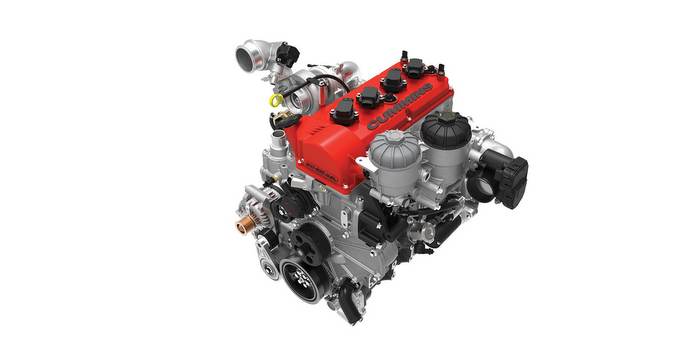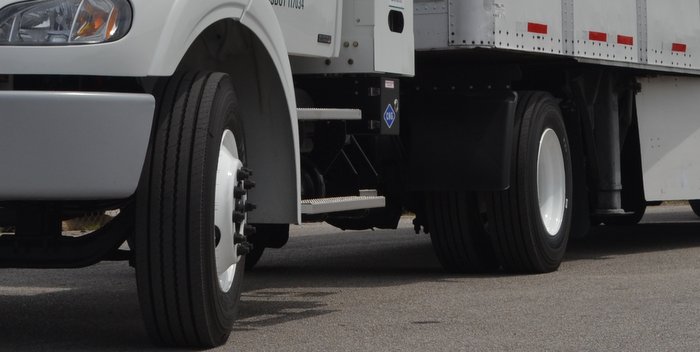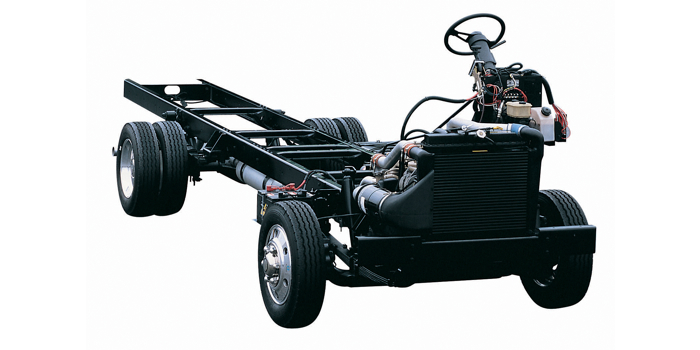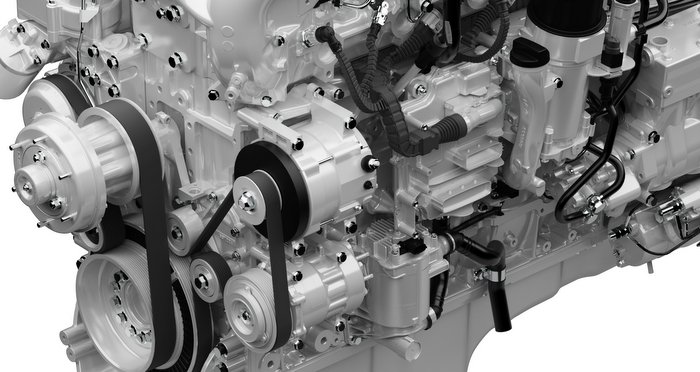Cummins Ethos 2.8L engine demonstrates emissions reduction
Cummins Inc. announced the development of an engine and powertrain that, according to Cummins, reduce carbon dioxide (CO2) emissions by as much as 80% compared with a baseline gasoline-powered medium-duty truck. The work was jointly funded by Cummins in partnership with the California Energy Commission (CEC). “The Cummins ETHOS engine, developed through a research partnership

Corn-based ethanol is swimming upstream
Corn-based ethanol production is currently about 10% of U.S. gasoline production, but overall sales volumes are down due to Americans driving more fuel efficient cars 9% less distance than they did in 2007. U.S. producers are exporting a lot of ethanol to keep their businesses profitable. Australia recently eliminated government ethanol production subsidies. Government subsidies

Clean fuel corner: Clear & bright—ISO cleanliness levels
When people talk about clear and bright, they could be chitchatting about the weather. However, in the domain of fuels and lubricants, this expression has been used since the ’80s. The oil industry calls it the Standard Test Method for Free Water and Particulate Contamination in Distillate Fuels (Visual). In all fairness, using the above
Clean fuel corner: Delivery and storage
Now that you understand how fuels are produced, the final product is ready to be delivered to customers that are spread across a wide geographical area. Fuels can be transported via pipe lines, rail carts, road tankers and sea [bulk cargo carriers]. The customer can be a bulk fuel depot that distributes the fuel to
Clean fuel corner: Additives in diesel fuel
Raw ultralow sulfur diesel fuels coming out of today’s modern refineries require various additives to bring them into specification. Although the details of each fuel spec vary in different parts of the world, the function of an additive is generally the same: to give the fuel a characteristic that it otherwise wouldn’t have right out
Clean fuel corner: Emissions driving changes and we say goodbye to sulfur
As we last discussed, many new engines employ high pressure common rail (HPCR) technology, injecting diesel fuel upwards of 2,700 bar. These engines are being challenged to meet stricter (read: cleaner) emissions requirements from governments around the world. To meet that challenge, engine OEMs are employing both on-engine and exhaust aftertreatment solutions. HPCR is an
Quarles, U.S. Bank gives access to Voyager Network fleet partners
U.S. Bank and commercial fuel station operator Quarles Petroleum have reached an agreement that gives holders of the U.S. Bank Voyager Fleet Card, or any of the bank’s Voyager Network fleet partners, access to 125 Quarles unattended card-lock stations in Virginia, Pennsylvania, Maryland, North Carolina, Delaware and West Virginia. “Quarles provides our Voyager Network cardholders
CNG usage is growing rapidly
It’s gratifying to see how rapidly compressed natural gas (CNG) and liquid natural gas (LNG) are being incorporated into both power generation and transportation. For several reasons, biofuels have not been able to keep pace. Gaseous fuels usage is increasing in spite of the fact that we still have no reasonable national energy policy. The

Growing popularity of propane as a light- and medium-duty fleet alternative fuel
Several developments reflect the growing popularity of propane autogas as a light- and medium-duty fleet alternative fuel. A central part of the recent Green Truck Summit’s focus on clean vehicle technologies and alternative fuel trends was propane autogas. In fleet terms, the business case for propane autogas in his company’s 30 cargo vans was explained

Combining fuel saving technologies to improve fuel economy, greenhouse gas emissions
You would never guess I was a scientist, would you? Recently two things occurred that made me better appreciate the work scientists do on our behalf. The National Research Council (NRC), a private non-profit organization of scientists chartered by Congress to provide unbiased technical expertise, released a series of recommendations on what the Phase II GHG/MPG

